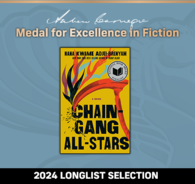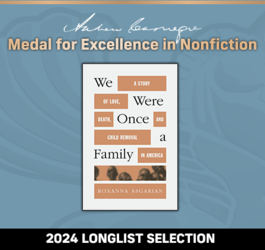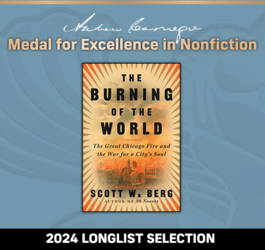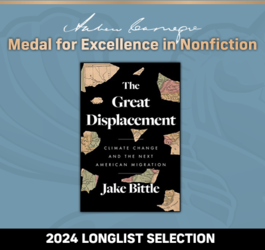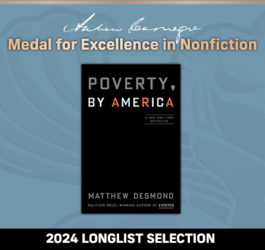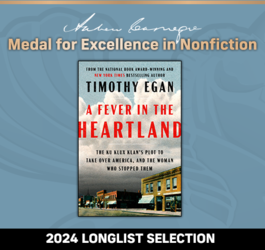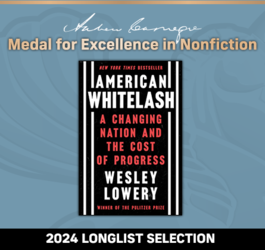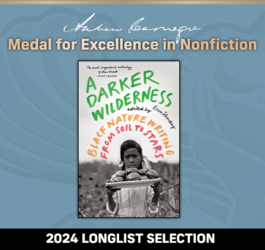2024 Winners

Congratulations to the winners of the 2024 Andrew Carnegie Medals for Excellence in Fiction and Nonfiction. The winners were announced by 2024 selection committee chair Aryssa Damron at the Reference and User Services Association’s Book and Media Awards event during LibLearnX in Baltimore on Saturday, January 20th. A celebratory event, including presentations by the winners and a featured speaker, will take place at the 2024 ALA Annual Conference in June 2024 in San Diego. Carnegie Medal winners each receive $5,000.
Share your favorite Andrew Carnegie Medals for Excellence titles on social media using the #ALA_Carnegie hashtag!
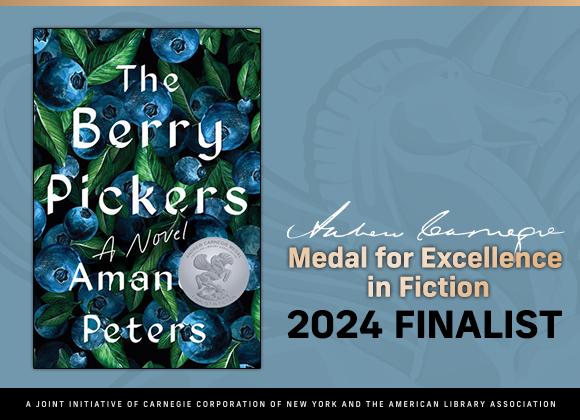
Fiction Winner
Amanda Peters
The Berry Pickers
(Catapult)
In 1962, an Indigenous Mi’kmaq family is in Maine to pick summer blueberries when their youngest child, four-year-old Ruthie, disappears. Her six-year-old brother, Joe, saw her last. Told in alternating, first-person chapters from Joe and a narrator called Norma, this braided novel fascinates. While little is easy for Peters’ characters, in the end, for all of them, there is hope.
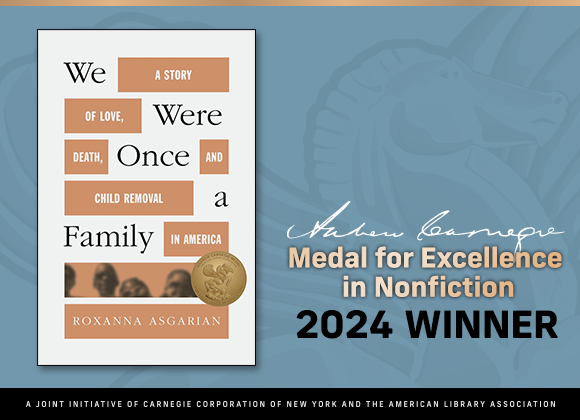
Nonfiction Winner
Roxanna Asgarian
We Were Once a Family: A Story of Love, Death, and Child Removal in America
(Farrar, Straus and Giroux)
Investigative reporter Asgarian’s years of work getting to know the birth families of six children killed by their adoptive parents in 2018 uncovered a devastating web of intergenerational poverty, violence, and wrenching separations. She exposes the tragedy of what happened and the ongoing, insupportable failings of the foster system.
Fiction Finalists
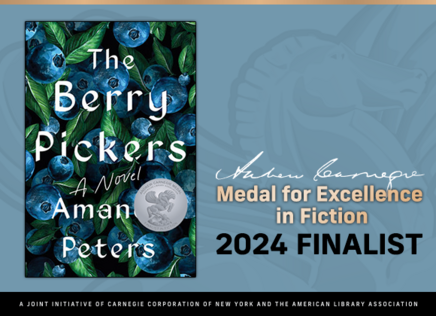
The Berry Pickers
Amanda Peters
(Catapult)
In 1962, an Indigenous Mi’kmaq family is in Maine to pick summer blueberries when their youngest child, four-year-old Ruthie, disappears. Her six-year-old brother, Joe, saw her last. Told in alternating, first-person chapters from Joe and a narrator called Norma, this braided novel fascinates. While little is easy for Peters’ characters, in the end, for all of them, there is hope.
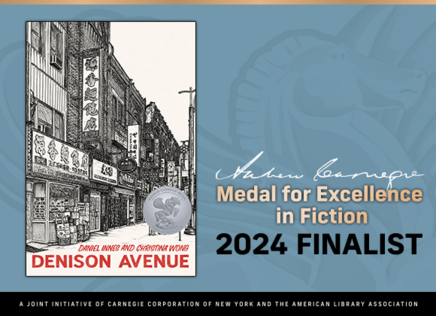
Denison Avenue
Christina Wong and Daniel Innes
(ECW Press)
In a mixed-media narrative saturated with a sense of poignancy and grief, Wong Cho Sum navigates the sudden death of her husband by a hit-and-run driver. As an “invisible” elderly observer, she compares the old Chinatown she remembers with this new, slowly gentrifying one. Innes’ detailed and beautiful hand-drawn illustrations are eye-catching complements to Wong’s writing.
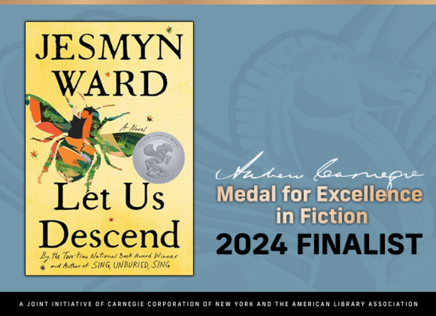
Let Us Descend
Jesmyn Ward
(Scribner, an imprint of Simon & Schuster, Inc.)
Sold away from her mother, teenage Annis, daughter of a Black mother and the white man who enslaved them, must endure a grueling march to the slave markets of New Orleans with only her wits and her mother’s ivory awl to help her survive. Ward’s vivid imagery and emotionally resonant prose convey the horrors of chattel slavery in stark, unforgettable detail.
Nonfiction Finalists
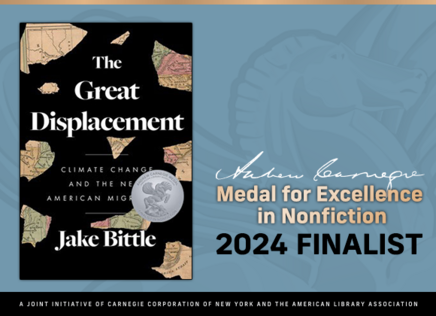
The Great Displacement: Climate Change and the Next American Migration
Jake Bittle
(Simon & Schuster)
This multifaceted examination considers numerous communities that have been wiped out by changing weather patterns and foretells a future filled with additional displacements. Environmental journalist Bittle uses a combination of science reporting and individuals’ stories to explain the fates of towns deemed uninhabitable, and ends with a plea for comprehensive environmental policy change and urgent action.
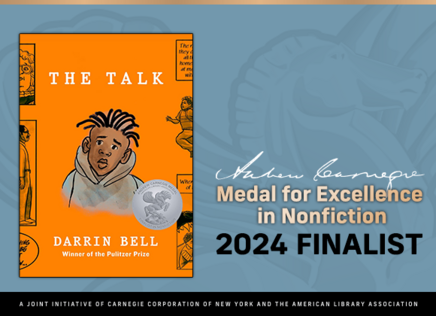
The Talk
Darrin Bell
(Henry Holt and Company)
In 2019, Bell became the first Black editorial cartoonist to win a Pulitzer Prize. In this brilliant graphic memoir, Bell’s growth from a trusting child afraid of dogs to an esteemed, nationally syndicated cartoonist is a marvel to witness through his spectacular panels and pages. A must-read manifesto against racist brutality.
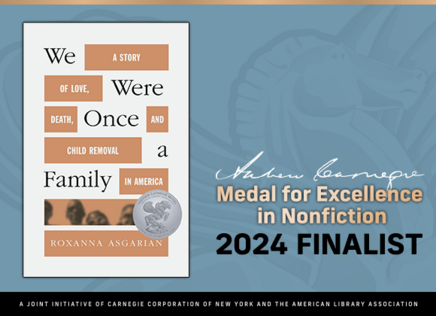
We Were Once a Family: A Story of Love, Death, and Child Removal in America
Roxanna Asgarian
(Farrar, Straus and Giroux)
Investigative reporter Asgarian’s years of work getting to know the birth families of six children killed by their adoptive parents in 2018 uncovered a devastating web of intergenerational poverty, violence, and wrenching separations. She exposes the tragedy of what happened and the ongoing, insupportable failings of the foster system.
